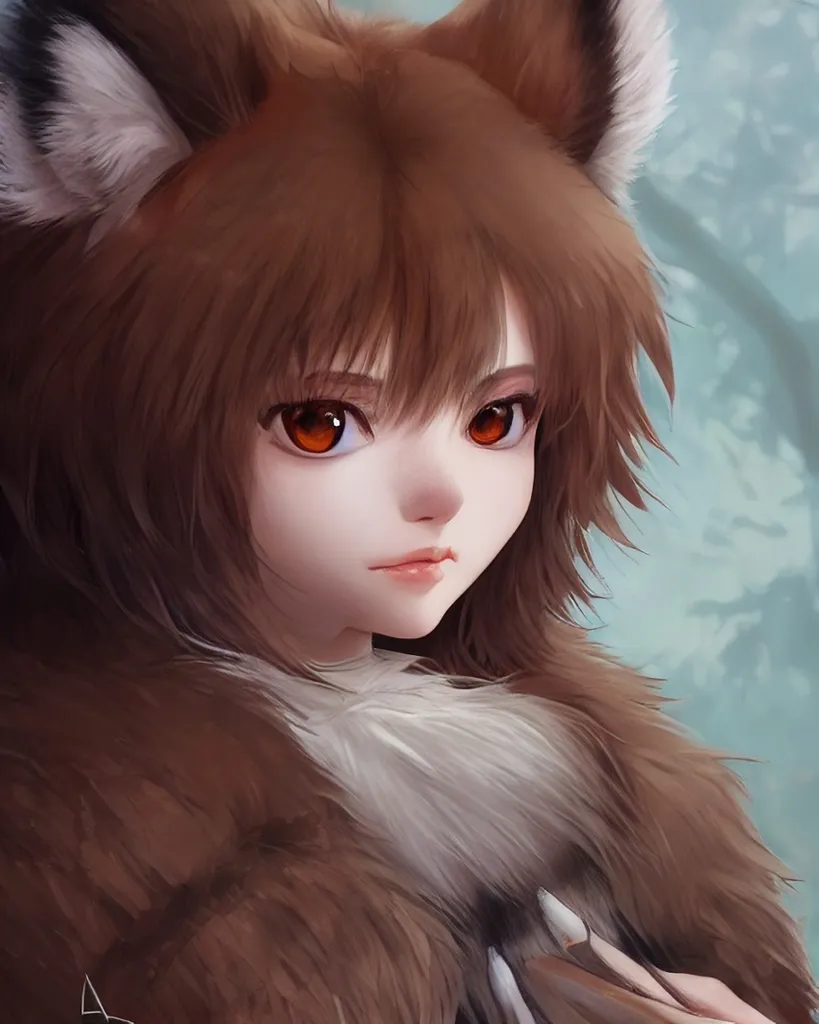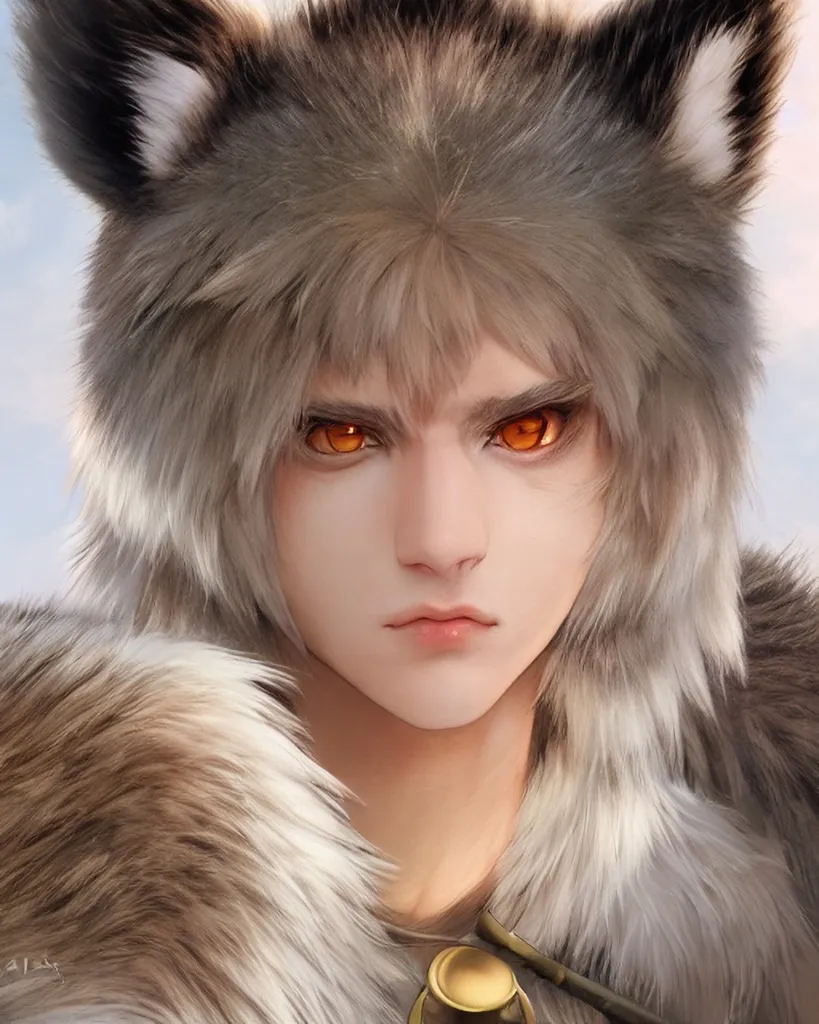Tanuki are a species of humanoids native to the Tanuki Archipelago, a series of 17 islands north of the eastern half of the Islestand Coast.
Their orgins are well known, having survived the ages through a complex oral tradition documenting the full history of the Tanuki Archipelago and the Seventeen Túatha. Their legends dictate they came to be during the final days of the Irisian War as a creation of the Z̚oman who had need of "a fighting heart, immortal skill, and a spirit fiery and wild". Archaeological evidence places their origins as greater than 2000 years. While any pre-war date is uncertain, it is believed the Tanuki have existed for nearly 4800 years.
Notably, many of their legends are supported by historical records, archaeological evidence, and anecdotes from Elves and a few Kami. Hence, passages of their legends and myths will be quoted in this document where applicable. Schoalrs studying the Irisian War may note the creation of the Tanuki being approximately 4800 years ago goes against modern archaeological theories regarding the timeline of the Ancient Elves fall, and the rise of the modern Elf bloodlines. A proper Archaeological Study is already under way to examine the new evidence, but do remember that time itself became fragmented and damaged during the war. The Tanuki would not be the first anomaly we have come across in our studies.
A notable aspect of the Tanuki that ought to be understood before anything else is their species is cursed. According to legend, the Founding Hero of the Tanuki (who is not to be named) was cursed by the Deamon Lord Méabh, or as the Tanuki say:
"He was bound and doomed to a short and a glorious life".
Late in his life, he encountered his estranged son, and due to his ignorance of his son's identity, slew him in battle.
"His son would find him as man, but would not tell his name. So he took a spear to his own child, and doomed us all to shame."
As a consequence, the son's patron deity, a now dead god of the Hearth and Home spread the curse to all male Tanuki (Hence why he was stripped of his name in memory.). All male Tanuki will inevitably die before their 18th year, usually in battle. This knowledge is key to understanding much of the Tanuki's cultural behaviors, some of which are adjacent to certain Wood Elven practices. Adjacent though they may be, they are performed for entirely separate reasons.
Scholar's note: The curse is very real. An experiment was preformed where a male Tanuki was placed in a secure vault for several years, under guard, and with prefect care. On their eighteenth birthday, a freak accident resulted in the ceiling of their chamber collapsing while a nurse was delivering food. The Tanuki died holding up the bulk of the ceiling to permit the nurse to escape.
Personality
Tanuki are a pragmatic people by nature. They seek the simplest solutions to their problems, which paradoxically can lead them spending more effort than if a more wise solution had been chosen instead. Tanuki also have a psychological need to don furs, and will incorporate fur in their clothing regardless of climate. They never seem bothered by heat due to their choice of clothing. These are only traits shared equally between their men and women.
Female Tanuki are highly communal. They prefer to spend their days in groups working together on mutual tasks. To this end, Tanuki always prefer to work in pairs if not groups. A blacksmith's shop will be home to at minimum two masters, who will share their teaching duties equally among their apprentices.
Female Tanuki are long-term planners as a rule. This ensures their species' longevity, and has secured several dragon's hoards worth of wealth for their people due to their eschewing short-term gains in favor of regular long term investments paying off in expected amounts. Stability and sustainability is the name of the game Tanuki women play at the Grandmaster level.
Male Tanuki are duo-focused. They prefer to spend their lives with a singular partner, typically also male. This is not an instance of homosexual romance, as the relationship is one of brothers. They will eat, sleep, bathe, train, and work as one, sharing all they gain with one another save for romantic partners. The bond between Brothers is so strong that there is no known instance of a woman coming between Tanuki men. The female will always be tossed aside if a social situation comes to such an ultimatum.
Male Tanuki are also quite brazen and rash. They live to be of use to the tribe, preferably as warriors. The warrior blood runs so strong in Male Tanuki that the number of them who die each year lashed to a standing stone surrounded by slain foes is typically in the double-digit range. Weather this glory-seeking is natural to their species, or entirely the product of their curse is unknown. What is known is Female Tanuki often erace standing stones locations from maps as they tire of washing them after yet another teenager decides to die in hommage of the death of their first great warrior.
While they are loath to admit it, the warrior's blood runs through Tanuki women as well. Should they deem battle to be the correct course of action given their long view of the world, they will march to war and fight with the tenacity of their male counterparts. Often exhibiting greater strength and cunning.
Tanuki living away from their homelands are somewhat less bloodthirsty, though they are often disciplined for fighting as children.
Physical Description
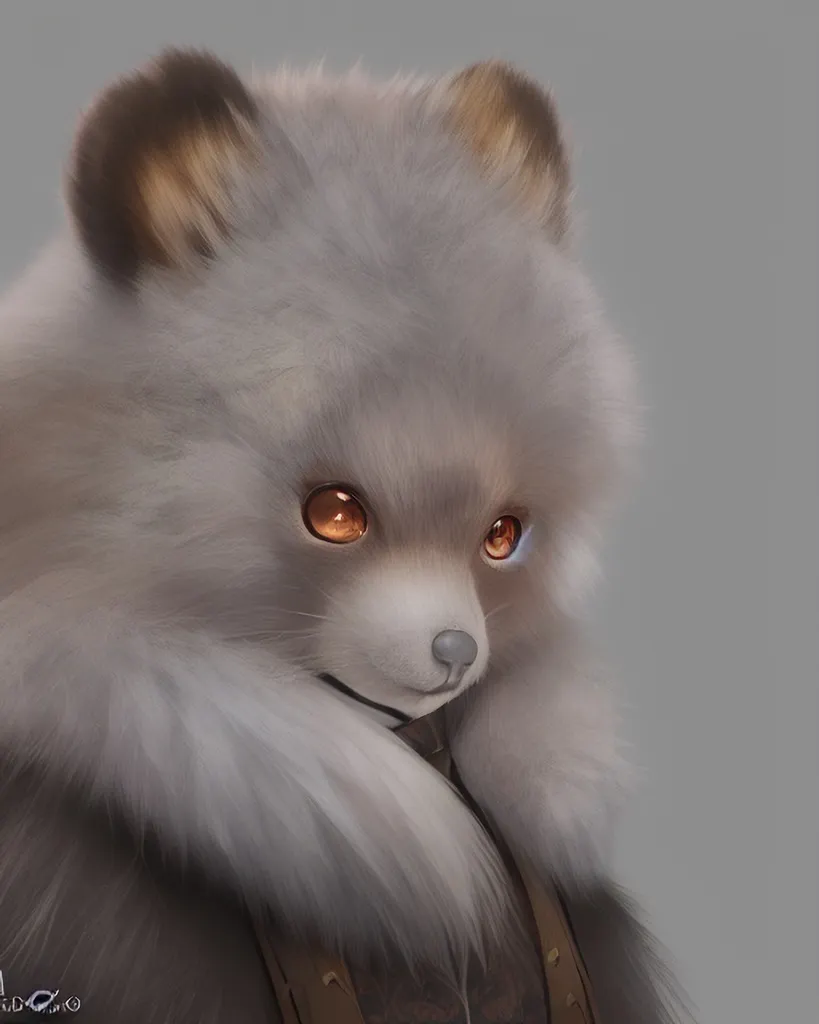
Tanuki are natural shapechangers. This ability appears to stem from their creation, which all evidence indicates was accomplished through fusing ancient human essence with that of a small mammal native to the Tanuki Achapelego, the Raccoon Dog. These essences are not quite unified, but rather joined in tandem, as a result Tanuki can alter their physical form at will to one of three states.
Most Tanuki prefer to live in their "Human" state, which appears to be a human, albit a little short, and with more fair features than humans are typically known for, though not so much as to invoke Elven beauty. Their eyes are most common amber, but greens and browns are common, while reds are not unheard of. Tanuki have straight somewhat spiky hair which comes in browns, grays, and blacks. If not for the animal-like ears atop their heads and long-furred tails Tanuki could be easily mistaken for Imperial humans in this form.
While few Tanuki prefer to spend much of their lives in their "Animal" form, they are able to transform into a Dire Racoon Dog at will. Their coloration is consistant between forms, with their hair color becoming their fur color, and so on. These small quadrupedal forms are often used to escape danger or navigate vertical environments such as treetops.
Their third form is that of a hybrid between their animal and human forms. It is most easily described as if someone took a Racoon Dog and bent it into a humanoid form as one might mold clay. These hybrid forms stand at prominently half the height of their Human states, and like the animal form match coloration. Many Tanuki prefer to live in these forms, and notably those who do feel no need to dress in furs.
A very common myth regarding the Tanuki is that all of them, even the women, possess exceptionally large gonads. Given Eyoms great variety of Elvenoid peoples, it would not be supprising if the Tanuki species were comprised of males and hermaphrodites but this is not the case. Despite this, there is some truth to the myth.
Due to the curse placed on their men, the Tanuki make use of ancient magics upon the birth of each new male child. These magics determine which males hold the strongest traits the Tanuki hold dear. The Tanuki widely believe that they must remain as close to what the Z̚oman designed them to be. Consequently, any male with the right essence is marked for "preservation" as the Tanuki call it. The others are given access to a vessle to hold their curse at bay (This takes the form of a seemingly ordinary chicken that serves as a kind of familiar). Should the vessle die, the curse will begin to consume the victem, resulting in an inevetable doom in the form of a "short and glorious life".
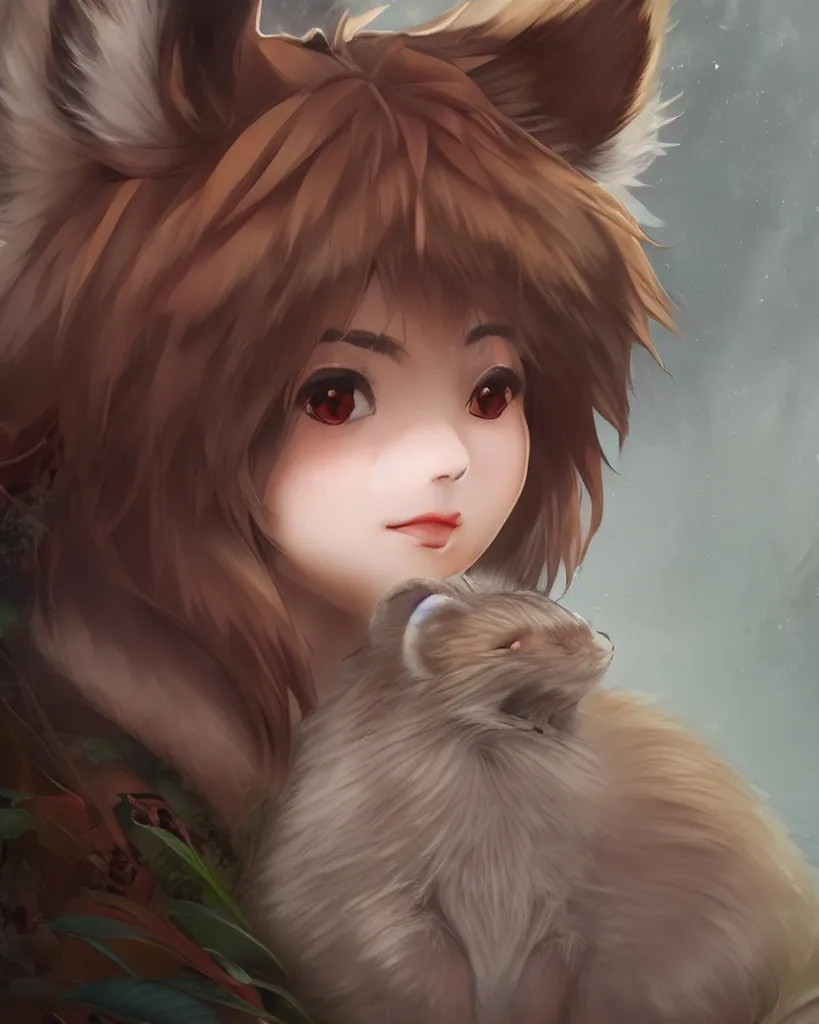
Marked males are weaned on alchemical reagents and subjected to specialized magics which cause their bodies to twist into a more female form. If successful, the Preservation process prevents the curse from realizing the Tanuki is male and thus they are spared its effects.
Unfortunately the Preservation attacks the male gonadal tissue, and if a male were given the Preservation alone, they would be unable to reproduce long before they came of age. To counteract these effects, a second alchemical regimen is employed, which fortifies and enlarges their reproductive anatomy. This counters the Preservation's negative side effects and produces a Tanuki male who appears to be female aside from a substantial bulge in their garments, who has the capacity to die of old age.
Preserved Males are still men in behavior and do not suffer any psychological effects from their transformation. Nor are there any social consequences, as Tanuki priamrily tell their men from women by sent, and the Preservation does not alter pheromones. There is frequent fighting between Preserved and Unpreserved males due to the unpreserved not being marked at birth.
Some smaller tribes living far from the Tanuki homelands are known to apply the preservation to all of their males, while simply castrating male children who do not possess the tribe's desired traits. This practice while cruel form an outside perspective, is quite progressive for the Tanuki, as it allows all males the chance at a long life. However, many Tnauki find these practices barbaric as the need for a family often drives middleaged Tanuki mad enough to take their own lives should the not find one.
It's most important to note that while species-wide physical alteration of children and selective breeding are Irisian practices, the Tanuki do not bow to Irus, and engage in these behaviors solely due to ancient traditions, and the need to maintain a breeding population. They should not be persecuted for these practices.
Relations
Tanuki receive a mixed reaction from most of Eyom's peoples. They are usually seen as barbaric for their reproductive and childrearing practices but are also seen as shrewd and wise businesspeople. Their males penchants for starting fights are often balanced by their equal penchant for heroics, but the fact that where there is trouble a young Tanuki male is often at the center of it colors their people in an unfavorable light.
Tanuki often corner markets relating to natural materials found above ground, making them impossible to fully avoid even by those who despise them. This results in most people believing that Tanukia re trouble, but useful. The Tanuki are fine with this view of their people.
Notable exceptions to this viewpoint are that of the Rattu, Kitsune, and Wood Elves. Rattu see the Tanuki as noble warriors who fight with greater passion than they themselves can draw from within their hearts. This gives the Tanuki an air of respect and reverence they appreciate so much that the Tanuki Homelands formally joined the Warreneese Empire simply to serve as its sword and bank.
The Kitsune on the other hand see the Tanuki as kin. While the Kitsune originated on the now lost Plane of Forests and the Tanuki originated on the Material Plane, the Kitsune see their spirits, and know they are of the same kind. This alone was enough for the displaced Kitsune people to come to accept that a people like theirs did in fact belong in the mortal world, and earned the Tanuki the Kitsune's eternal friendship. The Tanuki respond to this bond in a most simplistic manner. They were delighted to find people who naturally understood their accents and also knew how to create alcoholic beverages which didn't have a serious chance to kill or blind the drinker. Thus the bonds of eternal brotherhood were forged.
The Wood Elven viewpoint stands opposite those positive views of the Kitsune. The Wood Elves loath the Tanuki. Their hatred goes back to the Irisian War itself, wherein the Tanuki carved a bloody swath through the Wood Elves themselves, before Irus bestowed upon them their immortality. Whenever mortal forces clashed during the Irisian War, the Tanuki were there on the front lines, following their great hero into battle. It is said that durring this time the Tanuki warriors skill exceeded that of the COnstructs, and their grace was far in excess of the Elves own (The Tanuki believe the curse has caused their former mythic abilities to slip down to the level of mere mortals. Evidence indicates there is some truth to this claim.).
Regardless of the truth, Wood Elves take more pleasure in torturing and tormenting Tanuki over all other peoples.
Settlements
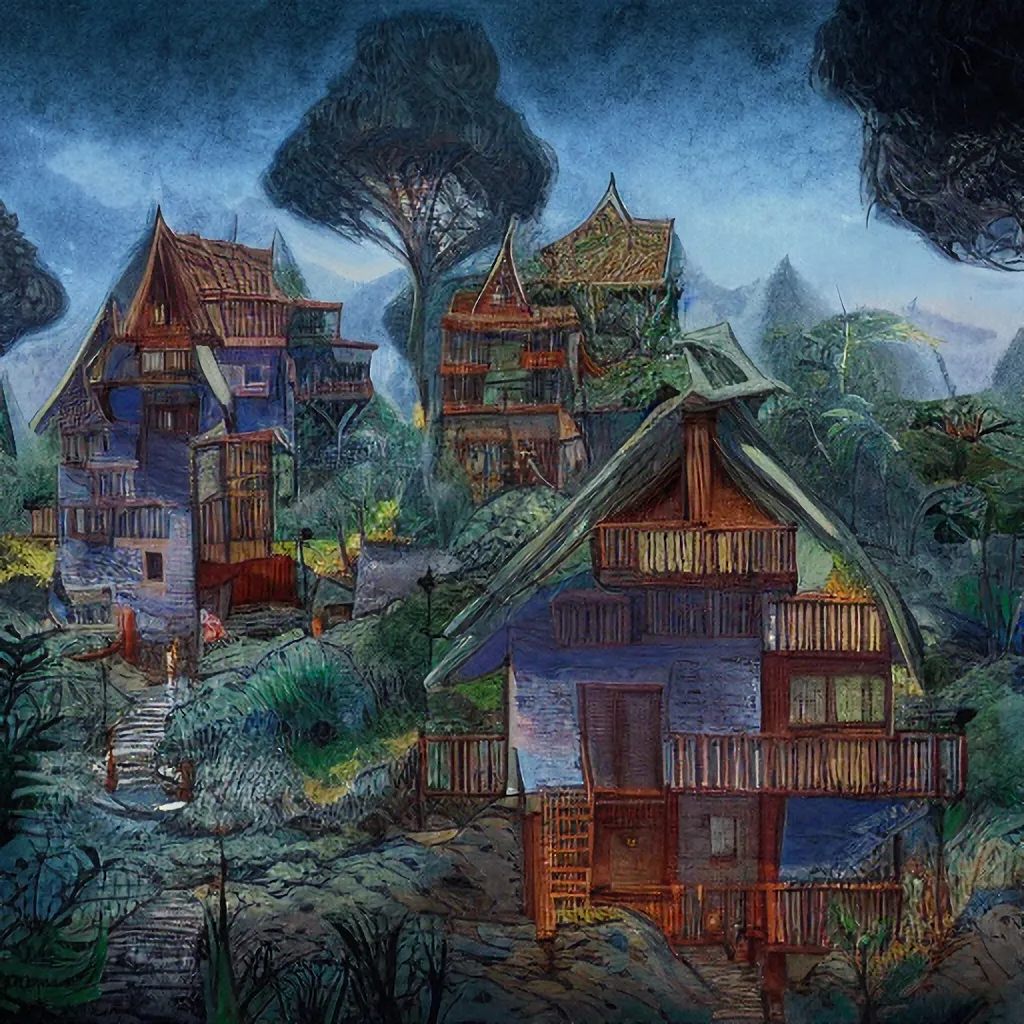
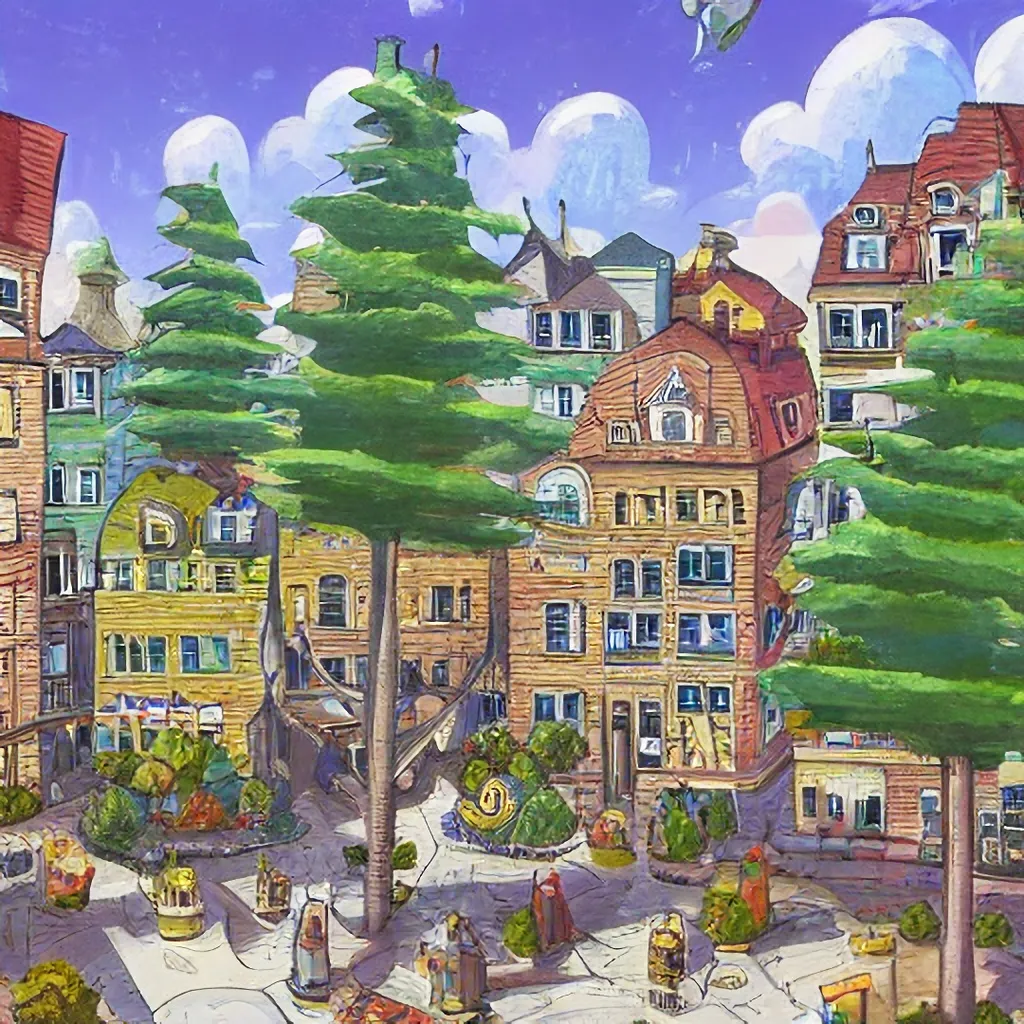 Tanuki construct their settlements in the typical humanoid fashion of clustering homes, worplaces, and shops together, and then connecting the clusters with common pathways. In this respect, their communities look like anywhere else. The most notable trait of a Tanuki community to outsiders is their architecture. While the nuances of their architectural styles are lost to the common man, their choice of building material is not. Tanuki prefer to construct log structures over all other kinds of building. From a distance a Tanuki village may appear to be a collection of cabins. However when one gets closer they will notice each home is in fact a manor house any noble would love to live in.
Tanuki construct their settlements in the typical humanoid fashion of clustering homes, worplaces, and shops together, and then connecting the clusters with common pathways. In this respect, their communities look like anywhere else. The most notable trait of a Tanuki community to outsiders is their architecture. While the nuances of their architectural styles are lost to the common man, their choice of building material is not. Tanuki prefer to construct log structures over all other kinds of building. From a distance a Tanuki village may appear to be a collection of cabins. However when one gets closer they will notice each home is in fact a manor house any noble would love to live in.
These log homes are multi-generational by design. A Tanuki's grandparents will inhabit the ground floor, along with any common facilities such as kitchens and living rooms. The second floor will be reserved for bedrooms and personal spaces for their parents, with the topmost floor being dedicated to the Tanuki themselves, their mate, and any children they may have.
Alignment
Tanuki have a very strong sense of justice and fairness which is very much focused on the group rather than the individual. They feel, deep down, that there must be rules, and that people who break the rules must be punished. If one were to be punished differently from another for breaking the same rule, that would be not only unjust, but shameful for the entire community. Consequently, Tanuki live by very strict codes which are universal to their local communities, if not their local regions, or even nations.
Tanuki are very passionate about social standing. They wish to be seen as good in the eyes of their communities, but also to be comfortable and free to live as they please within the bounds of their community's rules. They are thus most transactional, with their kindness coming at the cost of kindness in return. Of course, this behavior is only towards the general public. Tanuki provide assistance to their friends and family without any expectations of returns.
Adventurers
Tanuki are not prone to wandering from their homes, but those who do almost always do so in order to leave their mark on the world. If a Tanuki is not traveling for business, diplomacy, or to vacation in a specific well-known tourist location, they are certain to be searching for some injustice to rectify, monsters to slay, and Wood Elves to murder. Repeatedly, if at all possible.
This is true of both males and females, though there are far more young male Tanuki out in the world searching for the end to their short and glorious lives in some place where they wont upset their mothers by leaving a mess.
Clann Names
While the vast majority of modern Tanuki clans have modern Wareneese last names, a number of Clanns (Clan is written as clann by the Tanuki when referencing their ancient bloodlines) retained their ancient names out of a sense of honor and respect for their ancestors. These Clanns are listed below for the sake of documentation.
- Chulainn
- Mhaol
- mac Nessa
- mac Cumhaill
- mac Rónáin
- mac Morna
- Luachra
- mac Air
- Ferdiad
- mac Fintain


